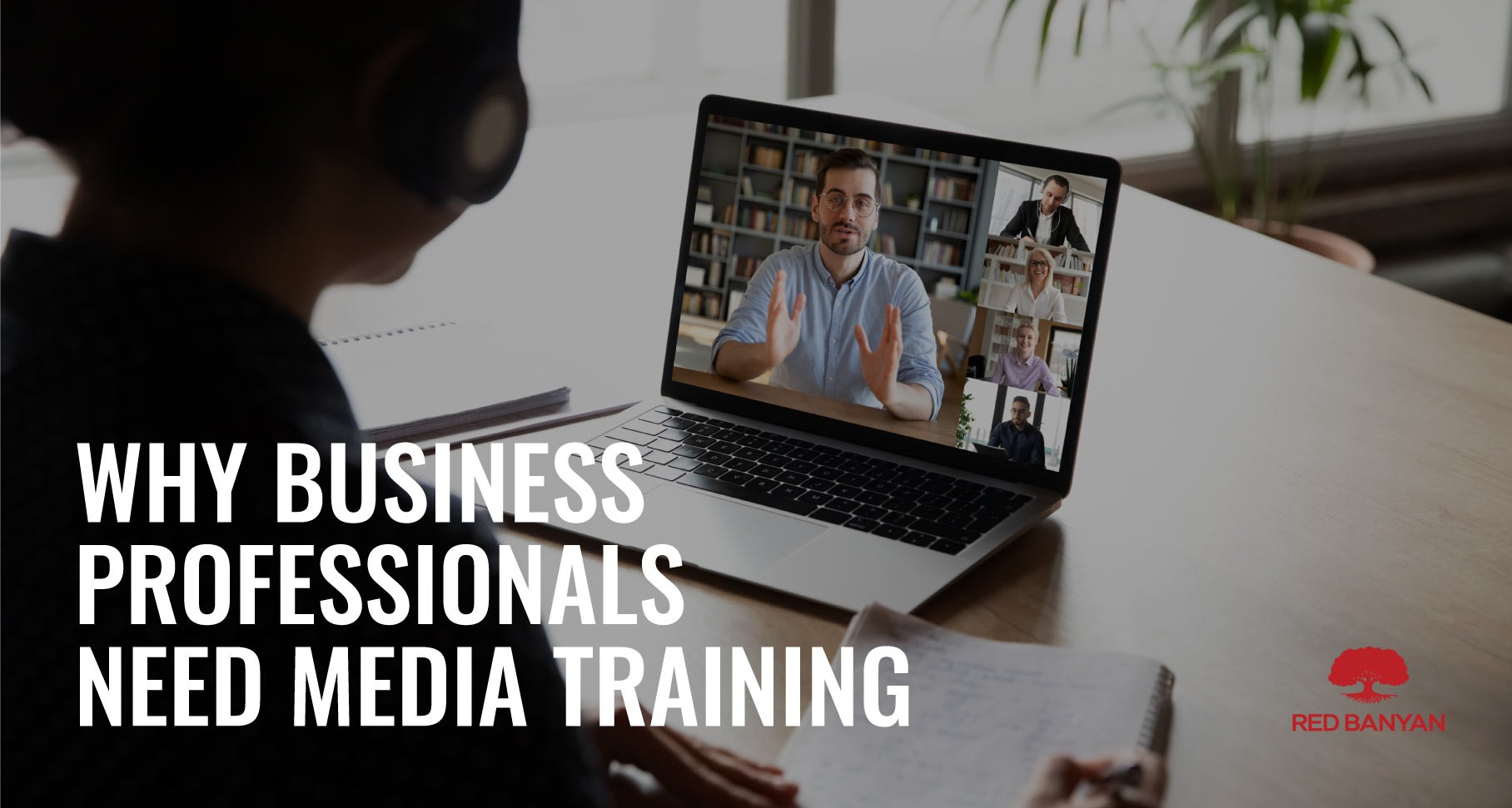Why Business Professionals Need Media Training
April 18, 2023 | Category: Blog, Crisis PR, Media Relations, Public Relations

The value of media training best practices cannot be overstated, especially in today’s fast-paced and constantly evolving media landscape. Being prepared for any potential media interaction is crucial for individuals and organizations alike.
One of the most important aspects of media training is learning how to conduct an interview. And let’s face it, most people have never been on the other side of a camera. It can be a stressful experience if you do not know what to expect. Preparation is the bottom line key to success.
This means understanding how to answer questions from reporters in a clear and concise manner, while also staying on message and controlling the narrative. Media training can also help individuals and organizations prepare for potential crisis situations and learn how to respond effectively in those scenarios.
In addition to learning how to conduct an interview, media training can also teach individuals and organizations about interview preparation. This includes creating key messages, developing talking points, and identifying potential media opportunities. By being prepared ahead of time is the best way that individuals and organizations can ensure that they are ready to maximize the benefit of any media opportunities that may arise.
Overall, media training is essential for anyone who may be in the public eye or who may have to interact with the media. It can help you control your messaging, prepare for potential crisis situations, and take advantage of media opportunities. Being prepared is key to success in any situation, and media training is a valuable tool for achieving that goal.
5 Ways Media Training Instills Confidence
Media training is an important process for individuals and organizations that may interact with reporters. The goal of media training is to prepare individuals to effectively communicate with the media and to control the message they convey. Here are 5 reasons why media training makes a difference:
- Media training will help distill your core messaging and make sure it is clear, concise, and consistent. Your core messaging should be well-rehearsed and practiced so that it can be easily communicated in any situation.
2. Media training emphasizes the importance of never saying anything that you don’t want on record. The media can be unpredictable, and it is essential to be mindful of what you say, as it may be quoted or used in a story.
3. Media training teaches you to convey the most important information first. Doing this will ensure that the most important points are covered and that the media has the key information they need to tell the story.
4. Media training emphasizes why you should never get defensive when interacting with the media. Remaining calm and composed, even when faced with difficult questions or criticism, is the key to successfully handling a tough interview.
5. Media training underscores the importance of honesty when interacting with the media.
Transparency and accuracy equal credibility so it is important to always tell the truth. The media will appreciate honesty, and it will help to build trust with the public.
In summary, media training involves preparing individuals to effectively communicate with the media, to control the message they convey and to be prepared. Core messaging should be clear, concise, and consistent, never say anything that you do not want made public, give the most important information first, and be honest when communicating.
- What is media training? Media training prepares you for interacting with the media and teaches you how to answer questions with confidence.
- Why is media training valuable? Media training can help you avoid common pitfalls like assuming comments are off the record when they are not, and allowing the conversation to veer into topics you are not prepared to discuss.
- Who should participate in media training? Media training is beneficial to anyone who has to deal with the media. Knowing what to expect and how to prepare for an interview are key to a successful media encounter.
- What is the goal of media training? The goal of media training is to make sure the interviewee is prepared with messaging, understands how to control the narrative and how to pivot when questions veer into uncertain territory.
Red Banyan’s team of media training experts have years of experience training employees, C-suite executives, and other key personnel how to deal with the media, answer questions and tell their stories in their own way.
Our team of communications professionals include former journalists who have first hand knowledge of what reporters need for their stories and the tactics reporters use when they conduct interviews. Red Banyan’s team of PR experts will make sure you are thoroughly trained so you can deal effectively with reporters and get your message across with confidence.

